China is getting a foothold in Latin America: Tillerson
US Secretary of State Rex Tillerson has warned Latin American countries against excessive reliance on economic ties with China, saying Beijing is establishing “a foothold in Latin America.”
In a wide-ranging speech at the University of Texas on Thursday ahead of his five-nation Latin America tour, Tillerson said the region should stay away from Chinese investment, European colonialism and Russian arms sales.
"China is getting a foothold in Latin America. It is using economic statecraft to pull the continent into its orbit," Tillerson told a crowd at his alma mater.
"Latin America does not need new imperial powers that seek only to benefit their own people," he added.
He added that the regional states should protect themselves against "predatory actors."
The top US diplomat pointed to China, the European Union and Russia and warned Latin American states that the region does not need another imperial power.
Tillerson also slammed Russian arms sales to certain governments in the region, accusing Moscow of helping what he called anti-democratic regimes.
The US is increasingly alarmed as the three major players are beginning to gain a foothold in Latin America, which used to be a major US backyard for decades.
Later on Thursday, Tillerson started his first major tour of Latin America by landing in Mexico City, Mexico. He would seek to better define American strategy in the United States's southern neighbor, a country that has been on the receiving end of some of US President Donald Trump's fiercest criticism.
Tillerson raises prospect of military coup in Venezuela

During his speech, Tillerson also said that there is a possibility that the Venezuelan military could oust President Nicolas Maduro in a coup d'etat.
Tillerson claimed the United States was not trying to implement a policy of "regime change" in Venezuela but advised Maduro to leave power on his own.
Tillerson predicted there would be some kind of change in Venezuela and insisted the United States wanted it to be a peaceful one.
“We have not advocated for regime change or removal of President Maduro. We have advocated that they return to the constitution,” Tillerson said when asked during a question-and-answer session whether the United States would play a role in the removal of Maduro.
"In the history of Venezuela and in fact the history in other Latin America and South American countries, often times, it is the military that handles that," Tillerson said.
"When things are so bad that the military leadership realizes that it just can't serve the citizens anymore, they will manage a peaceful transition," he said. But he added that, "Whether that will be the case here or not, I do not know."
The government-allied Constitutional Assembly called for the presidential election to be held in April, bringing the date forward from an initial end-of-the-year timetable. The new date now has to be approved by the National Electoral Council.
The 55-year-old Maduro, who came to power after the late Hugo Chavez in 2013, has survived massive anti-government protests during the past two years.
Critics blame him for destroying the economy of the once-prosperous country, causing an acute economic crisis and shortages of basic commodities such as foodstuffs. Opponents also accuse Maduro of turning the Latin American country into a dictatorship and seeking to consolidate power for his United Socialist Party of Venezuela.
The government claims the right-wing opposition is incited by the US to topple his socialist government, hobble the country’s economy, and plunder its oil wealth. Authorities blame foreign sanctions, led by Washington, for the food and medicine shortages in the country. Venezuela now has the highest inflation rate in the world.
Last year, Trump slapped bans on Maduro, labeling him “a dictator who disregards the will of the Venezuelan people.”
VIDEO | Israel’s economic crisis
May 1: ‘Axis of Resistance’ operations against Israeli occupation
Russia says US has held UN Security Council 'hostage'
Israel accused of committing yet another war crime over killing 8-year-old boy
US Muslims slam House’s bill on criminalization of anti-Israel speech
VIDEO | Families of Israeli captives press for swap deal with Hamas
IRGC: Iran employed only 20% of its military resources to punish Israel
Explainer: What’s significance of Columbia’s Hamilton Hall, renamed ‘Hind’s Hall’?


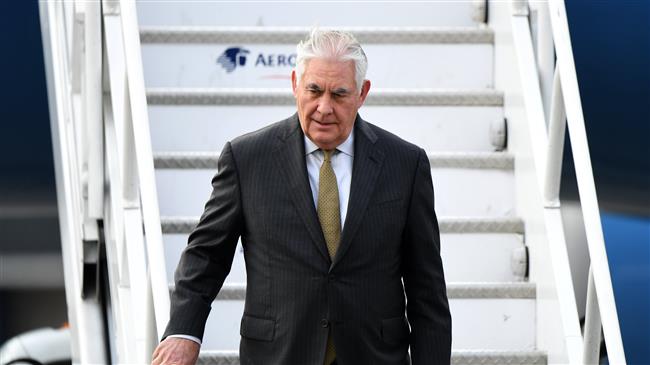
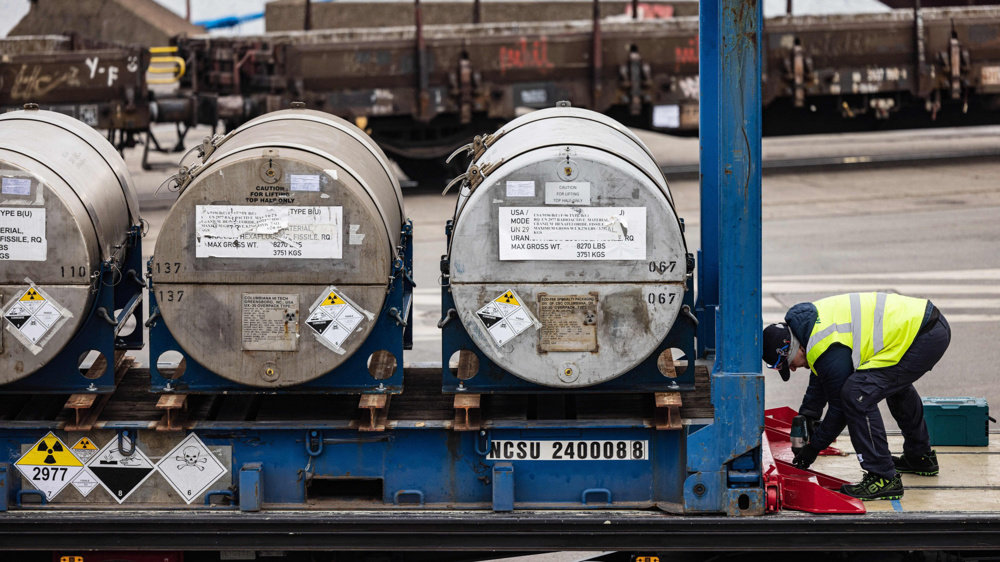
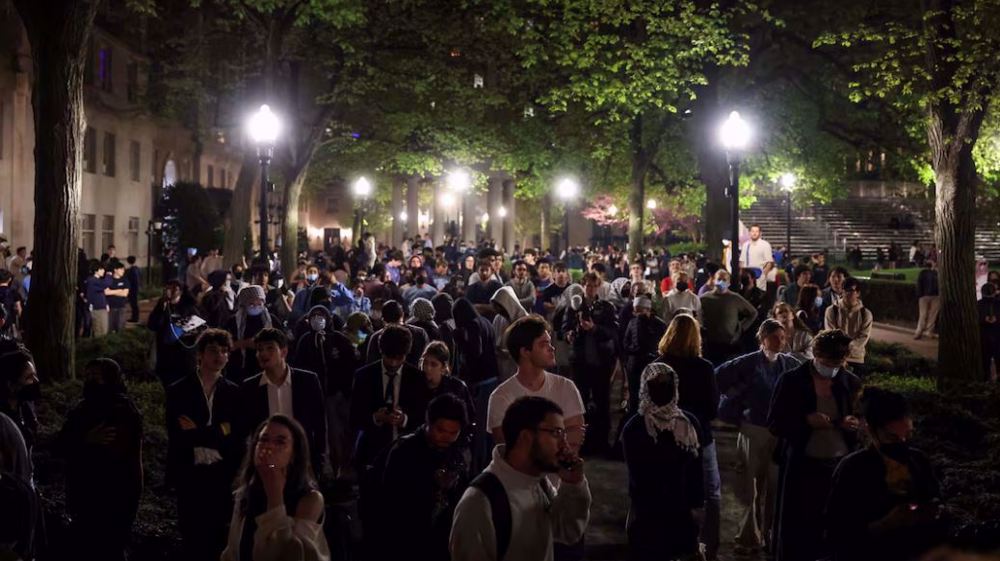




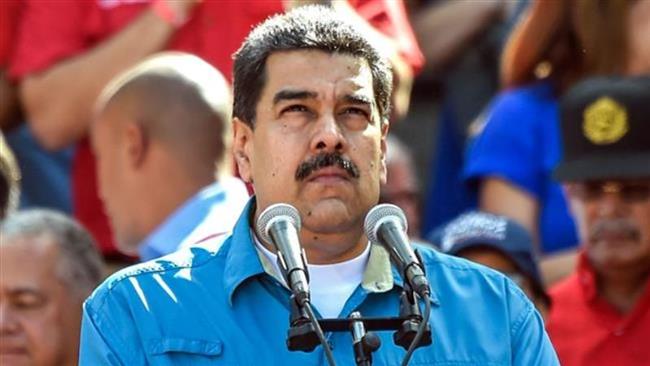
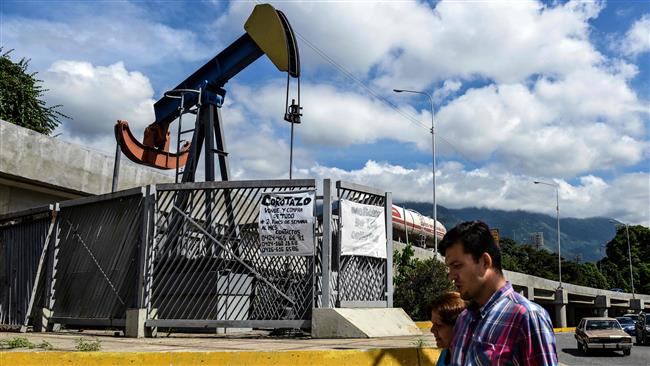
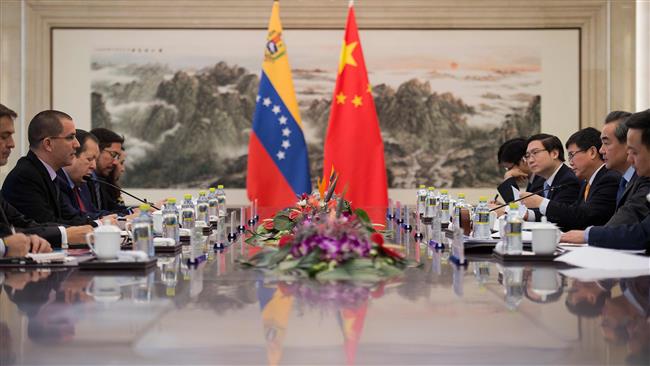


 This makes it easy to access the Press TV website
This makes it easy to access the Press TV website